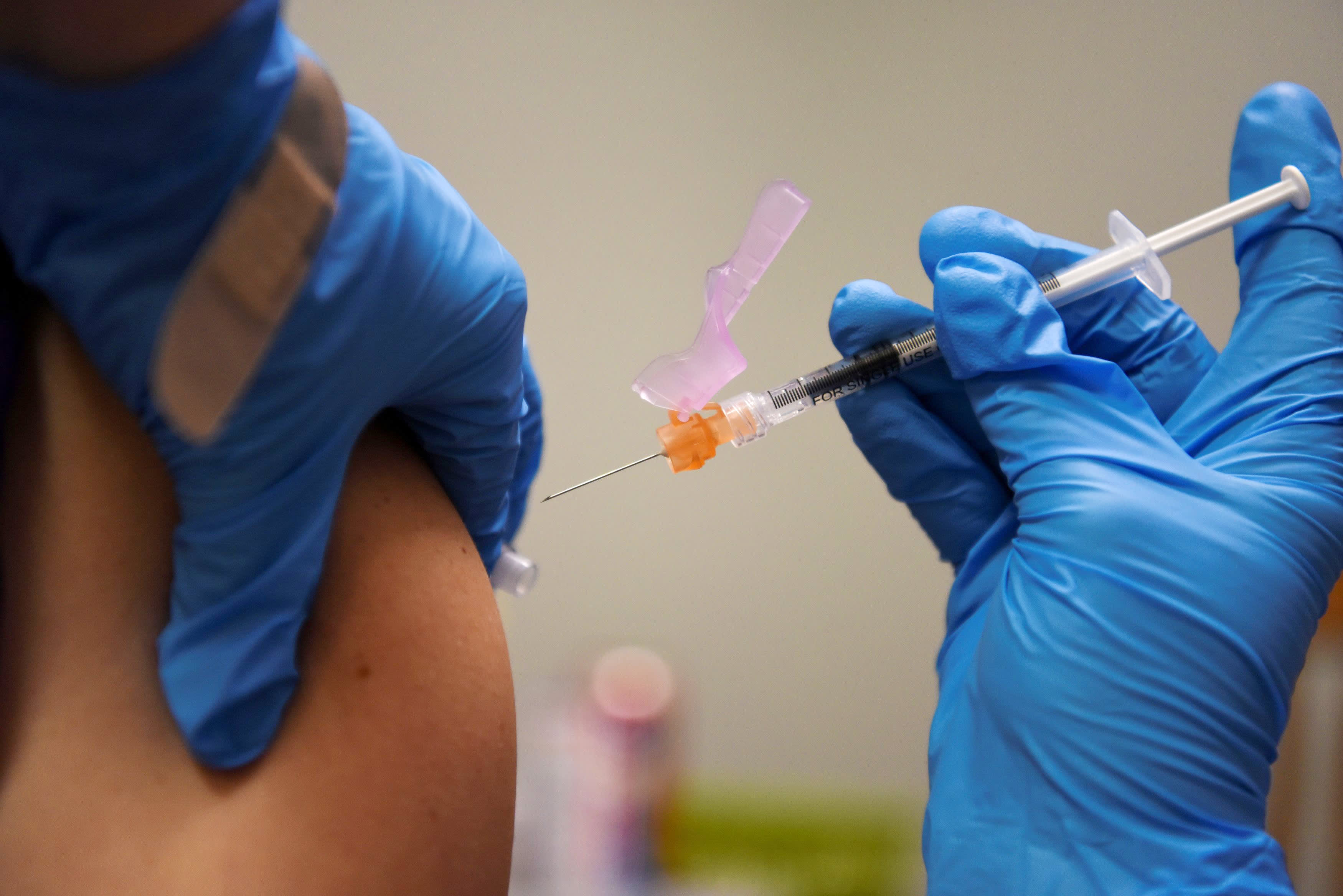
A person receives a COVID-19 vaccine at Floyd’s Family Pharmacy as cases of the coronavirus disease (COVID-19) surge in Ponchatoula, Louisiana, U.S., August 5, 2021. Picture taken August 5, 2021.
Callaghan O’Hare | Reuters
The Food and Drug Administration authorized Covid-19 vaccine booster shots for people with weakened immune systems, a highly anticipated move intended to shield some of the most vulnerable Americans from the highly contagious delta variant.
The FDA OK is not the final go-ahead. The Centers for Disease Control and Prevention’s vaccine advisory committee has scheduled a meeting Friday to consider shots for immunocompromised Americans. If they issue a recommendation and it is approved by the CDC, third shots could begin immediately.
White House chief medical advisor Dr. Anthony Fauci said last week that federal health officials were speeding regulatory efforts to clear third doses for such people, including cancer and HIV patients or those who have had organ transplants. He said new data suggested they don’t produce an adequate immune response after receiving two doses of a Covid vaccine.
“Immunocompromised individuals are vulnerable,” Fauci said Thursday. “It is extremely important for us to move to get those individuals their boosters, and we are now working on that, and we will make that be implemented as quickly as possible. … It is a very high priority.”
Such people represent only about 2.7% of the U.S. adult population but make up about 44% of hospitalized Covid breakthrough cases, which is when a fully vaccinated individual becomes infected, according to recent data from a Centers for Disease Control and Prevention advisory group.
Studies suggest that a third vaccine shot might help patients whose immune systems don’t respond as well to a first or second dose.
Four small studies cited by the CDC last month showed that 16% to 80% of people with weakened immune systems didn’t have detectable antibodies to fight Covid after two shots. Among vaccinated patients who had no detectable antibody response, 33% to 50% developed an antibody response after receiving an additional dose, according to the CDC.
With delta surging in the U.S., doctors fear leaving such groups unprotected against the virus could lead to even more dangerous variants.
Fauci, speaking with “CBS This Morning” earlier Thursday, said it is “likely” everybody will eventually need to receive a booster dose. But the priority right now, he said, is to give boosters to people who have compromised immune systems.
Some doctors had long been pushing for the U.S. to allow immunosuppressed populations to get an extra dose, and many of them are already finding additional doses of the vaccines on their own, medical experts say.
A CDC advisory group met last month to consider whether fully vaccinated Americans with weakened immune systems need a booster dose after data showed they are less likely to have antibodies to fight the disease and more likely to suffer from a breakthrough infection.
“The hardest to vaccinate people are those who are immunosuppressed,” Dr. Dan Barouch, an immunologist at Harvard Medical School, said in late June. Data suggests at least a third of them respond well if they get a third dose, he added.
The FDA’s move comes after the World Health Organization urged wealthy nations last week to temporarily stop the distribution of booster shots, citing vaccine inequity across the globe. However, world health officials made sure to emphasize they were not referring to the extra doses that may be needed now for certain groups, like those with weakened immune systems.
Other countries, such as France, are already giving out third shots to people living with cancer or other immune impairments. Israel announced plans last month to offer booster shots to people over age 60, another high-risk population, as the shot’s effectiveness appears to wane in those individuals.
In the U.S., Mississippi, a state with some of the lowest vaccination rates, is advising that doctors consider a booster dose for people with weakened immune systems. Health officials there recommend waiting at least four weeks after full vaccination before receiving a booster.
This is a developing story. Please check back for updates.




